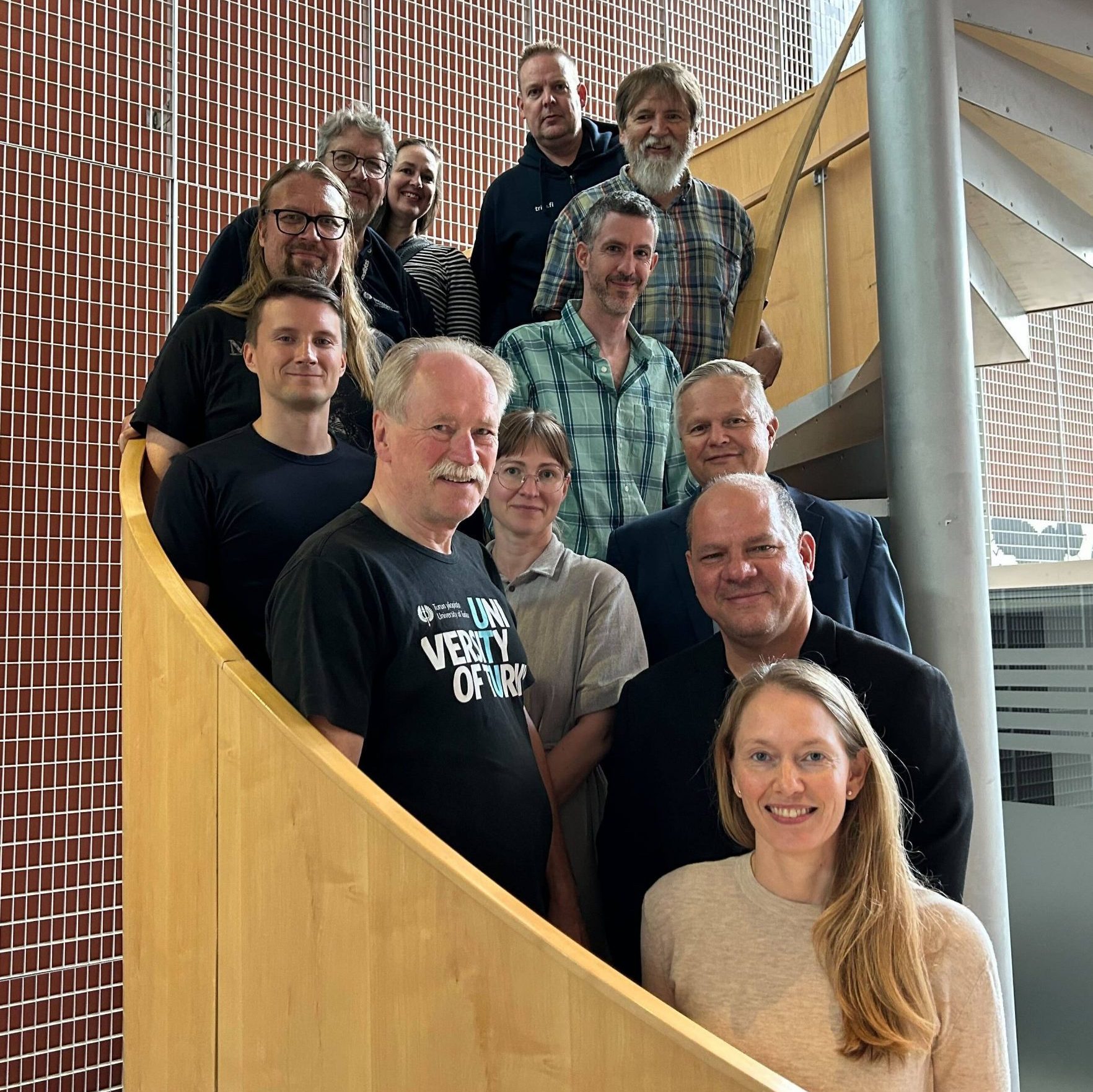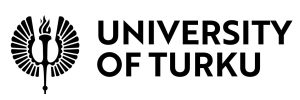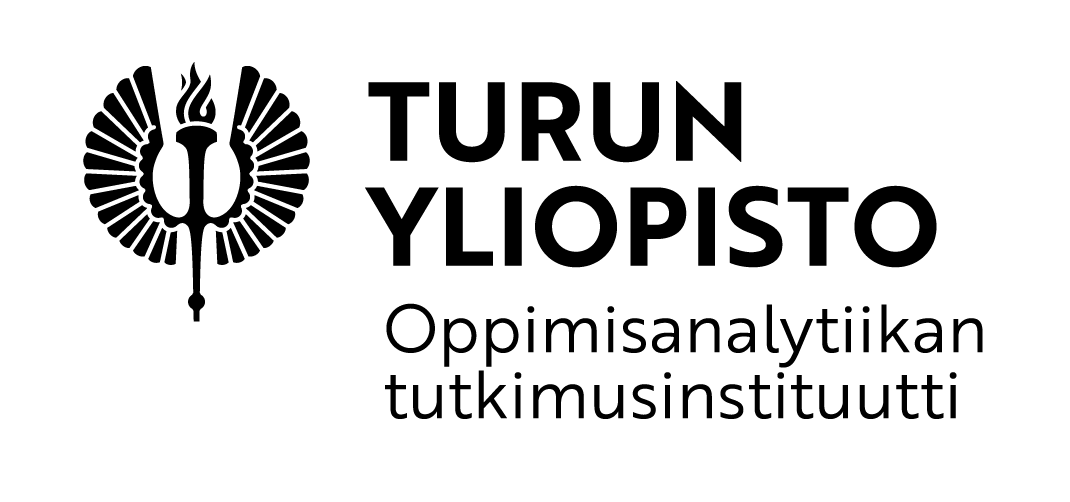In 2021, the University of Turku Research Institute for Learning Analytics, in collaboration with the Department of Psychology and Speech-Language Pathology at the University of Turku, and Haskins Laboratories, initiated a project to research and advance digital methods for assessing reading skills.
Our objective is to explore and analyze a broad range of reading-related skills across various stages of development. The overarching aim is to comprehensively capture the linguistic landscape and its variations. To achieve this, our research spans a diverse array of languages. This initiative is known as the Multilingual Reading Assessment, abbreviated as MUREA.
Our research team comprises scholars from Finland, the United States, and Israel. To date, we have developed multiple digital assessment tasks designed to measure and analyze the reading skills of pupils. These tasks have already been employed in various large-scale assessments of pupils and are currently undergoing further refinement and development.

Multilingual Reading Assessment
Our project is dedicated to investigating and creating effective methods for evaluating & improving the reading skills of individuals across diverse age groups and language backgrounds. To accomplish this objective, we are in the process of designing scalable assessment tools & interventions.
In summary, our goals are as follows:
- Research the development of reading skills in individuals from various language backgrounds.
- Assess and explore the entire spectrum of reading skills.
- Develop assessment methods grounded in research that are easily applicable for teachers.
- Develop large-scale open databases to guide researchers, clinicians, and educators.
Throughout 2022, our team formulated a series of tasks specifically targeting different reading skills at both the word and subword levels in Finnish. Initial datasets were collected to evaluate the reliability & validity of these tasks.
In 2023, the researchers continued developing new tasks and refining the existing battery. In addition, multiple tasks were also constructed in Swedish. The group met face to face for the first time in August 2023 to discuss plans for the future.
In 2024 and 2025, our focus will be on publishing our initial findings and refining our existing tasks. We have also begun developing tasks that assess morphological skills and reading comprehension. Additionally, the team is planning several subprojects, including a lexical database and reading interventions, to support educators in teaching and remediating individuals’ reading skills.

Research
Currently, we are actively engaged in reporting our findings. In the near future, we anticipate releasing comprehensive studies focusing on two distinct tasks: one aimed at evaluating vocabulary and another designed to assess lexical quality in Finnish. Additionally, our reports will delve into insights regarding rapid guessing behavior and psychometrics pertinent to measuring reading skills. Links to each forthcoming article will be provided on this page, so we encourage you to check back periodically for updates. As a starting point, we invite you to explore an insightful article on the inception of Lexize, the original L2 vocabulary task that served as the foundation for the development of d-Lexize: Lexize: A test to quickly assess vocabulary knowledge in Finnish.
Upcoming Articles
Tomi Rautaoja, Noam Siegelman, Tuomo Häikiö, Petra Enges, Pekka Räsänen, Santeri Holopainen, Jay G. Rueckl, Kenneth R. Pugh, Jukka Hyönä, Raymond Bertram. Looking for individual and developmental differences
in the shallow: Evidence in Finnish [Manuscript in preparation].
Assessment tasks
Currently, our primary emphasis is on developing tasks specifically designed to assess diverse component skills in children across varying age groups. Every task undergoes a thorough and research-driven development process. Upon achieving a functional version, we are committed to transparently sharing our findings, welcoming feedback and contributions from fellow researchers. Here is a brief overview of the tasks currently in progress:
Tasks for preschool level
Tasks for grades 1-2
Tasks for grades 3-9
Members & How to Contact Us
MUREA is a collaborative initiative involving the University of Turku, Haskins Laboratories (affiliated with Yale University and the University of Connecticut), and the Hebrew University of Jerusalem. The project is coordinated by the Turku Research Institute for Learning Analytics. The participating researchers are listed below.
We are actively seeking to expand our network by welcoming new partners and incorporating additional languages into our research. If you are intrigued and believe you could contribute to our project in any capacity, we encourage you to reach out to the coordinator of MUREA at
tomi.rautaoja[at]utu.fi. We welcome your interest and look forward to potential collaboration.
Raymond Bertram
University (Senior) Lecturer,
Department of Psychology and Speech-Language Pathology, University of Turku
Raymond is an eye-tracking specialist who has extensive experience in psycholinguistic studies. Alongside his involvement in MUREA, he is engaged in a Finnish as a second language project and a project on stuttering in bilinguals. In the former, the focus lies on exploring the role of vocabulary and morphological skills in late Finnish language acquisition. In the latter, the goal is to identify criteria for diagnosing stuttering in bilinguals, who often show heightened disfluency, even without stuttering.
Petra Enges
Project Coordinator, Turku Research Institute for Learning Analytics, University of Turku
Petra is a seasoned educator specializing in Finnish language acquisition. With an extensive background in instructing Finnish as both a native tongue and a secondary language across diverse age groups, her expertise spans the spectrum of language pedagogy. She is dedicated to advancing the science of teaching and learning Finnish.
Santeri Holopainen
Statistician, Turku Research Institute for Learning Analytics, University of Turku
Santeri’s research focuses on psychometrics with an emphasis on studying diverse statistical methods for identifying sources of measurement error in psychological testing. His work seeks to advance understanding and develop methods to enhance the validity and reliability of psychological tests.
Jukka Hyönä
Professor Emeritus
Department of Psychology and Speech-Language Pathology, University of Turku
During his academic career, Jukka has applied the eye-tracking method to study written language processing (word recognition, morphological processing, syntactic parsing, text comprehension), visual attention and visual cognition.
Tuomo Häikiö
University (Senior) Lecturer,
Department of Psychology and Speech-Language Pathology, University of Turku
Tuomo is an eye-tracking specialist whose main research interests concern the development of children’s reading skills. Tuomo has also been involved in eye-tracking research of infants’ processing of emotional stimuli.
Mikko-Jussi Laakso
Professor, Director of the Turku Research Institute for Learning Analytics, University of Turku
Mikko’s main research interests are learning analytics, computer-assisted learning, large-scale assessments & learning losses in math and reading, machine learning & AI in education. With 20 years of experience in research-based development of education at a national level, he has sought to advance the field through the implementation of educational technology solutions.
Kenneth R. Pugh
Director of Research, Haskins Laboratories, Professor of Psychological Science, University of Connecticut, Associate Professor, Yale Child Study Center
Ken’s research focuses on cognitive neuroscience and psycholinguistics, particularly the neurobiology of language and reading development in children. He has served on numerous scientific advisory boards, including the International Dyslexia Association and Dyslexia International, and currently advises institutions such as the Child Mind Institute and the Moss Rehabilitation Research Institute. Dr. Pugh has contributed to national research efforts through roles at the NIH and the National Academies. He received the NIH MERIT Award in 2017 and an honorary doctorate from the University of Jyväskylä in 2019 for his contributions to brain and language research.
Tomi Rautaoja
Research Coordinator, Doctoral Researcher
Turku Research Institute for Learning Analytics, University of Turku
Tomi is committed to exploring how linguistic comprehension shapes reading skill development. Currently pursuing a Ph.D., he concentrates on advancing our understanding of reading skill development and assessment.
Tomi currently serves as the Coordinator of MUREA. Please contact him if you are interested in discussing potential collaboration: tomi.rautaoja[at]utu.fi.
Jay Rueckl
Professor of Psychological Sciences, University of Connecticut; Senior Scientist, Haskins Laboratories; Co-director of Learning Disabilities Research Innovation Hub.
Jay’s research uses behavioral methods, neuroimaging, and computational modeling to understand the machinery of reading and reading acquisition. Recently, he has investigated reading acquisition and reading disability across languages, the differences between at-risk children who do or do not respond to intervention, and the acquisition of knowledge of the statistical regularities of the writing system in both typically developing and dyslexic children.
Pekka Räsänen
Professor of Practice, Vice Director
Turku Research Institute for Learning Analytics, University of Turku
Pekka is a clinical neuropsychologist with 30 years of experience in developmental disorders. Currently, his research focuses on learning and learning difficulties in basic skills in mathematics and reading and their relation to cognitive skills and emotional well-being, as well as on digital interventions for dyscalculia and dyslexia.
Rosa Salmela
Post-doctoral researcher, Turku Research Institute for Learning Analytics, University of Turku
Rosa’s research focuses on first and second language learning and assessment. She developed the Lexize tool to study Finnish vocabulary assessment and has investigated mobile-assisted language learning interventions in L2 Finnish morphology. She also has expertise in applying eye-tracking methods to L2 morphological processing in written language.
Noam Siegelman
Assistant Professor
Department of Psychology & Department of Cognitive and Brain Sciences, Hebrew University of Jerusalem
Noam studies reading, learning, and their intersection, with the goal of understanding variability in reading skills given one’s ability to learn the structure of their writing system. He also has a soft spot for psychometrics, methodology, and statistical modeling, and a likeness to all datasets, big and small.


